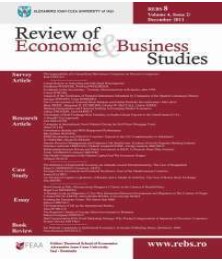FISCAL POLICY, FDI AND MACROECONOMIC STABILIZATION
FISCAL POLICY, FDI AND MACROECONOMIC STABILIZATION
Author(s): Claudiu Tiberiu Albulescu, Nicolaie IancuSubject(s): National Economy, Supranational / Global Economy, Economic history, Post-War period (1950 - 1989), Transformation Period (1990 - 2010), Present Times (2010 - today), Fiscal Politics / Budgeting
Published by: Editura Universităţii »Alexandru Ioan Cuza« din Iaşi
Keywords: macroeconomic stabilization; fiscal burden; FDI inflows; Pooled Mean Group; Euro area;
Summary/Abstract: The purpose of this paper is to investigate the impact of counter-cyclical fiscal policies and FDI inflows on macroeconomic stabilization in the selected Euro area countries. Performing a panel data analysis for 9 economies over the timespan 1980-2014 and, using a Pooled Mean Group estimator, it was shown that a counter-cyclical fiscal policy, associated with a lower tax burden during turbulent economic times, contributes to the reduction of output volatility. At the same time, increased FDI inflows positively influence the macroeconomic stabilization. In addition, a reduced volatility of investment inflows has a positive impact on the economic growth stabilization, but this result is sensitive to the way the tax burden is calculated. In a nutshell, the findings show that, in the long-run, authorities should resort to counter-cyclical fiscal policies and encourage FDI inflows to stabilize the economy and, thus, reduce the amplitude of business cycles.
Journal: Review of Economic and Business Studies (REBS)
- Issue Year: 2016
- Issue No: 18
- Page Range: 131-146
- Page Count: 16
- Language: English

